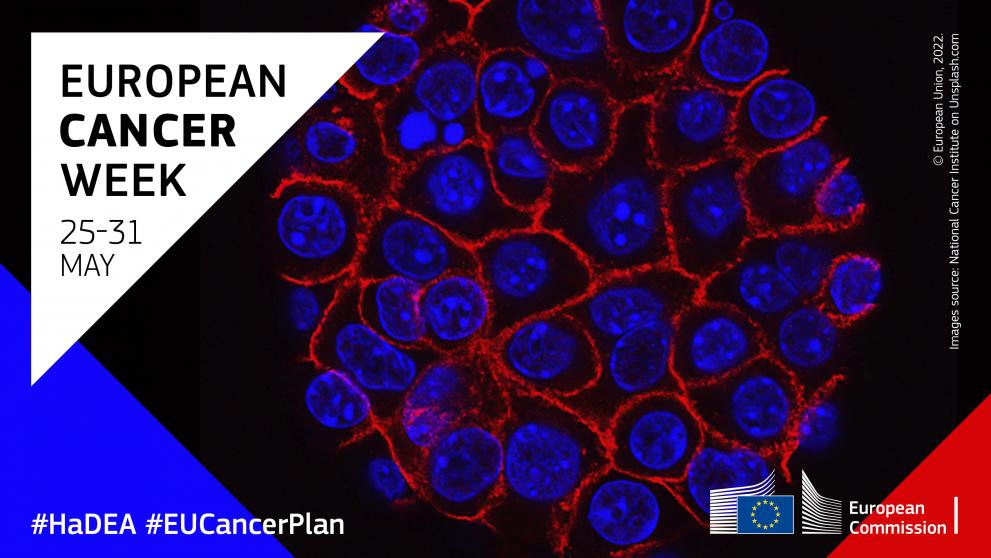
As the European Week Against Cancer (EWAC) is in full swing, let’s take a closer look at the themes of cancer research and access to treatment.
The aim of Europe’s Beating Cancer Plan and the EU Mission on Cancer is to tackle the entire disease pathway. Improving diagnosis and treatment are among their priorities.
Through several actions and flagship initiatives, these will ensure that patients across the EU can benefit from better care and treatment.
HaDEA is currently managing a number of projects under the programmes EU4Health and Horizon Europe health research (Cluster 1) , successor of Horizon 2020. Both programmes actively contribute to Europe’s Beating Cancer Plan and the EU Cancer Mission.
EU4Health Programme
The 2021 and 2022 EU4Health Annual Work programmes fund several actions on cancer, including open calls on optimising diagnostic technologies and treatment strategies.
HaDEA recently closed a call for tenders, with the aim to sign a service contract to provide an analysis on workforce availability, education and training needs to ensure quality and safety of medical applications involving ionising radiation in Europe.
Horizon Europe Cluster 1 ‘Health’
HaDEA has launched two Cancer Mission calls for proposals, with a focus on improving cancer clinical trials and strengthening its infrastructures:
- Pragmatic clinical trials to optimise treatments for patients with refractory cancers
- Strengthening research capacities of Comprehensive Cancer Infrastructures
Research projects under Horizon 2020
The FORCE project has addressed a fundamental need in the planning and monitoring of cancer treatment: the quantification of metastatic potential and the ability to measure response to therapy at early stages. Tissue biomechanics and tumour forces such as Interstitial Fluid Pressure are thought to be key indicators for those processes. The project has developed and built a new and complete approach to quantify these physical properties non-invasively in patients, via clinically available Magnetic Resonance Imaging. FORCE has demonstrated via clinical data from human trials in breast, liver tumours as well as brain lesions, the ability of tumour forces to measure metastatic propensity. It has also quantified via biomechanics the efficacy of drug delivery for breast cancer therapy at much earlier time points than current standard of care.
The HERCULES project has studied samples from patients with high-grade serous ovarian cancer. The data collected has been used to establish computational models and tools to predict the most effective drug combinations. Based on the results, a prototype of a commercial test for predicting the best drug combinations to individual patients will be developed.
Background
Since 2003, the first, second and third health programmes have implemented the EU health strategy. The EU4Health programme is the latest and largest one to date in monetary terms, with a budget of €5.3 billion in current prices. EU4Health provides funding to national authorities, health organisations and other bodies through grants and public procurement, contributing to a healthier Europe.
Horizon 2020 (H2020) was the EU’s multiannual funding programme between 2014 and 2020. H2020 provided Research and Innovation (R&I) funding for multi-national collaboration projects as well as for individual researchers and SMEs via special funding instruments. Horizon 2020 continues as Horizon Europe programme which will run until 2027.
Relevant links
More from the series:
European Week Against Cancer kick-off: early detection saves lives
Details
- Publication date
- 27 May 2022
- Author
- European Health and Digital Executive Agency
- Programme Sector
- Health
- Programme
- EU4Health
- Horizon Europe
- Horizon Europe Cluster 1: Health
- Tags
- EUCancerPlan
- EUFunded
- HealthUnion
- Medical research
- Public health
